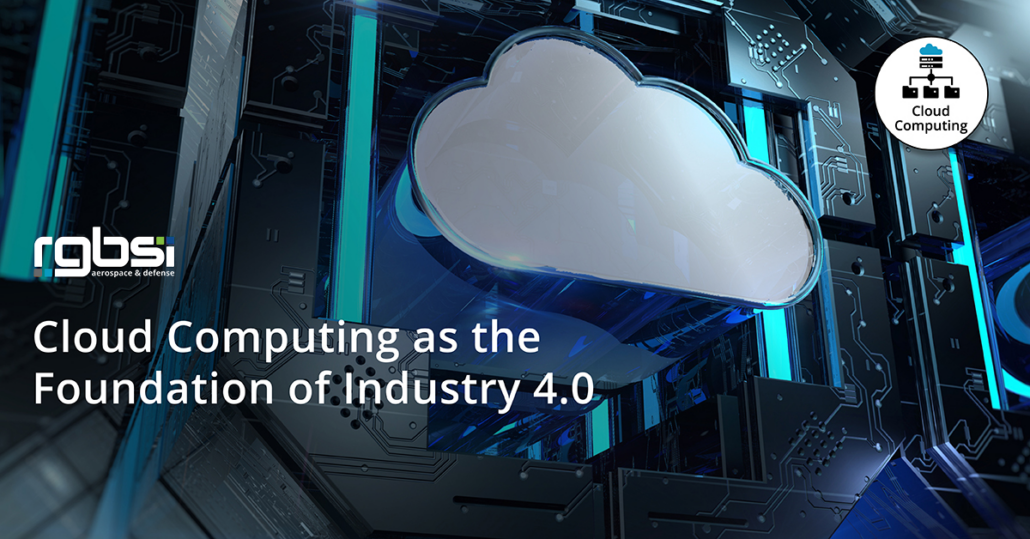What is cloud computing?
Cloud computing uses hardware and software to deliver a service over a network that is usually the internet. Smartphones are an example of advanced computing hardware with many cloud computing applications. Email service providers such as Google Gmail and Microsoft Outlook are examples of using cloud computing to store messages. Often the videos and photos we capture on our phones are not 100% stored locally due to phone hardware storage limitations. Phones are networked computing devices that send data from email and other applications over an internet connection to a server hosted by parties such as Google, Microsoft, or Apple. Cloud computing serves as the foundation of Industry 4.0 technologies
How do businesses use cloud computing?
Cloud computing applications streamline certain managerial and operational processes. For example, cloud computing applications centralize data storage, bandwidth, and processing, which means that individual users don’t have to personally install applications on their laptops or workstations. Instead, users access them from the cloud. There is also a real-time exchange of information in cloud applications such as Slack, which fosters an environment of collaboration and integration.
A top concern for businesses is that the cloud presents greater security risks because a third party controls the server where the data is stored. In contrast to this belief, the cloud comes with its own security advantages, such as triggering on-going updates, which improves infrastructure security.
Although different, cloud computing mitigates risk differently from local hosting and provides several operational benefits. It reduces the expense of employing someone to manage a local server, improves scalability, and enhances reliability. Information stored through cloud computing is rarely lost.
How is cloud computing used in Industry 4.0?
In Industry 4.0, companies with collaborative supply chains benefit from using the cloud in several ways. The real-time visibility of centralized information by multiple parties along the supply chain allows management to take a more proactive approach. If conditions change or a problem arises, organizations can nimbly react to ensure and tweak efficiencies while reducing risks of reoccurring issues.
Among the top five Industry 4.0 technologies being implemented by manufacturers, cloud computing has an 85% adoption rate. Intel and Oracle researched 1200 managers of medium to large global manufacturing companies and found that 60% believe cloud infrastructure is necessary to unlock the full potential of Industry 4.0 technologies.
Cloud computing is vital to every other technology in Industry 4.0. The other technologies managed by cloud computing infrastructure differ dependent on the industry. For example, manufacturing and automotive view advanced robotics and machine learning (ML) as increasingly important to assembly lines and autonomous vehicles.
The internet of things (IoT) leverages cloud computing in a fundamental way for altering shipping and logistics, removing different person-to-person procedures, and replacing them with machine-to-device intercommunication. This is also known as the industrial internet of things (IIoT).
Fleet management is easier with cloud computing infrastructure and other Industry 4.0 technology, such as location tracking. Look no further than the advanced telemetry that empowers manufacturers and retailers to track single items in their supply chain (using location tracking) as they manage the whole supply chain within real-time. For a company, a cloud-based fleet management system with real-time data reporting on availability, servicing, maintenance status, and mileage becomes a tool for adapting to real-world conditions that are sometimes unreliable. Managing issues becomes much easier with a cloud computing infrastructure or platform.
Takeaway
Cloud computing enables efficient supply chain communication and presents opportunities to unlock the full potential of disruptive technologies. On an industry-wide scale, it is important for companies to adopt cloud computing as it is the foundation for all Industry 4.0 driven innovation.





Location Tracking for Manufacturing Efficiencies and Safety
Supply Chain Optimization, Systems and TechnologiesThe 5 Core Tools of Quality
Quality Solutions, Supply Chain OptimizationAugmented Reality (AR) in Federal, Enterprise, and Industrial Settings
Business Consulting, Systems and Technologies